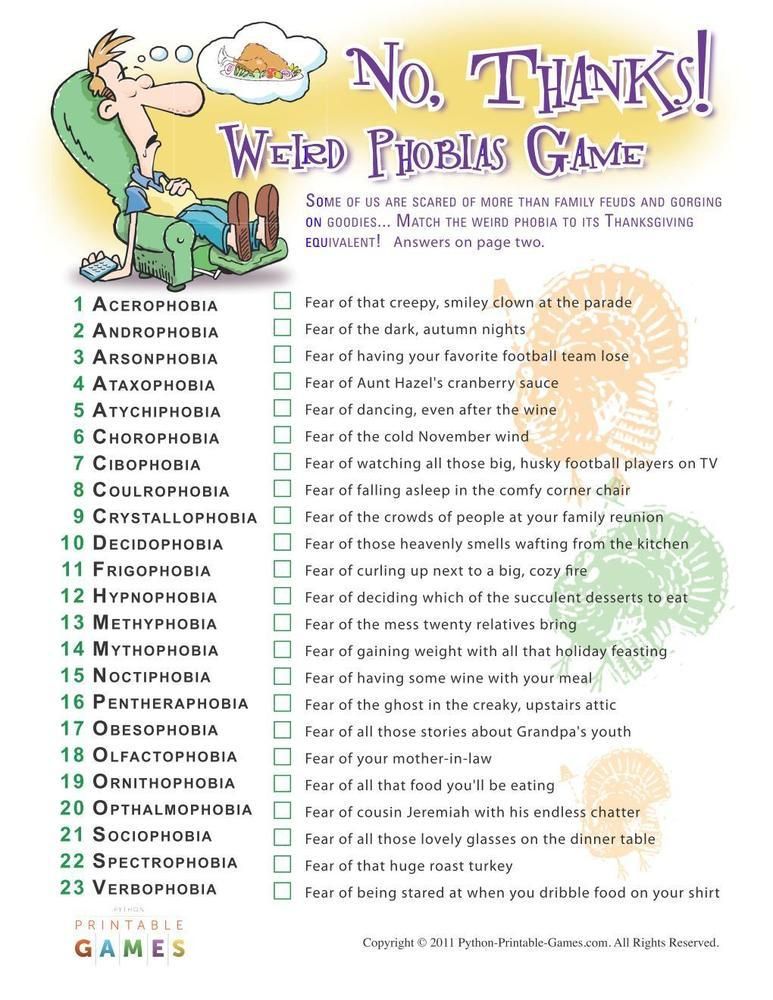Aspergers in relationships
Relationship Problems of Adults with Asperger’s Syndrome
By Tony Attwood
The following article was recently published as the Foreword to an excellent and highly recommended new book: “The Partner’s Guide to Asperger Syndrome” by Susan J. Moreno, Marci Wheeler and Kealah Parkinson, 2012, Jessica Kingsley Publishers, London.
Introduction
Adults with Asperger’s syndrome have difficulties acquiring relationship skills due to the defining characteristics of the syndrome, experiences with peers during childhood and the expectations of their partner. However, some adults with Asperger’s syndrome do achieve long-term relationships. This article examines the factors inhibiting relationship skills at each stage of the relationship continuum, the characteristics of Asperger’s syndrome that can be attractive to a partner and strategies to improve relationship skills.
Article
Children with Asperger’s syndrome have significant difficulty developing peer relationships and are developmentally delayed in knowing what someone may be thinking or feeling. Such individuals also have a conspicuously limited ability to have a reciprocal conversation or communicate emotions, and have special interests that can be unusual in terms of intensity or focus. They can also have an extreme sensitivity to particular sensory experiences. All of these characteristics will affect relationship skills throughout childhood and eventually an adult’s ability to achieve a long-term successful relationship.
While an adult with classic autism may appear content with a solitary ‘monastic’ lifestyle, this is often not the case with adults who have Asperger’s syndrome. Clinical experience has identified that the majority of adolescents and young adults with Asperger’s syndrome would like a partner, and that those who do achieve a relationship have problems maintaining the relationship. However, there is remarkably little research examining this aspect of Asperger’s syndrome, and very few proven strategies to facilitate successful relationships. This chapter will outline the difficulties in acquiring relationship skills experienced by people with Asperger’s syndrome, based on the defining characteristics of the syndrome, clinical experience, autobiographies, and the descriptions of partners. The chapter will also provide some preliminary suggestions to encourage a successful relationship and indicate areas for future research.
The chapter will also provide some preliminary suggestions to encourage a successful relationship and indicate areas for future research.
Factors inhibiting relationship skills
From early childhood, people with Asperger’s syndrome are less likely to recognize and understand thoughts, beliefs, desires and intentions of other people in order to make sense of their behaviour. They are developmentally delayed in Theory of Mind abilities (Baron-Cohen 1995). This will adversely affect the development of the important relationship skills of empathy, trust, and the ability to repair someone’s emotions and share thoughts and responsibilities (Attwood 2004). Typical children have a natural ability to achieve an age appropriate Theory of Mind and have practiced relationship skills with family members and friends for many years before applying them to achieve a successful relationship with a partner.
In order to achieve a successful relationship, a person also needs to understand and respect themselves (Lawson 2005). Self-understanding and self-reflection can be particularly difficult for people with Asperger’s syndrome (Frith and Happe 1999). Self- respect will have been adversely affected by being rejected, ridiculed and tormented by peers (Attwood 2006). Adolescents with Asperger’s syndrome are also gullible and vulnerable to being given misinformation on relationships by fellow teenagers. This can include instances of being deceived and ‘set up’ that could lead the person with Asperger’s syndrome to be accused of inappropriate social or sexual behaviour.
Self-understanding and self-reflection can be particularly difficult for people with Asperger’s syndrome (Frith and Happe 1999). Self- respect will have been adversely affected by being rejected, ridiculed and tormented by peers (Attwood 2006). Adolescents with Asperger’s syndrome are also gullible and vulnerable to being given misinformation on relationships by fellow teenagers. This can include instances of being deceived and ‘set up’ that could lead the person with Asperger’s syndrome to be accused of inappropriate social or sexual behaviour.
Clinicians recognize that people with Asperger’s syndrome have difficulty understanding and expressing emotions and are prone to develop an anxiety disorder, depression or difficulty managing anger (Attwood 2003a). These characteristics will obviously have a detrimental effect on the ability to develop friendships throughout childhood and relationships as an adult. One of the characteristics of Asperger’s syndrome can be emotional and social immaturity that can influence the person’s age preference for friends. This can be of particular concern when an adolescent with Asperger’s syndrome prefers the company of much younger children. The relationship motivation of the person with Asperger’s syndrome could be interpreted as being more than platonic.
This can be of particular concern when an adolescent with Asperger’s syndrome prefers the company of much younger children. The relationship motivation of the person with Asperger’s syndrome could be interpreted as being more than platonic.
An emotion that is confusing to people with Asperger’s syndrome is love. Typical children and adults enjoy frequent expressions of affection, know how to express affection to communicate reciprocal feelings of adoration and when to repair someone’s feelings by expressions of affection. A child or adult with Asperger’s syndrome may not seek the same depth and frequency of expressions of love through acts of affection, or realize that an expression of affection is expected in a particular situation and would be enjoyed by the other person. They can be bewildered as to why other people appear to be ‘obsessed’ with expressing love for each other. Someone with Asperger’s syndrome may actually perceive expressions of affection as aversive experiences, and a hug as an uncomfortable squeeze that restricts movement, and they can become confused or over-whelmed when expected to demonstrate and enjoy relatively modest expressions of affection.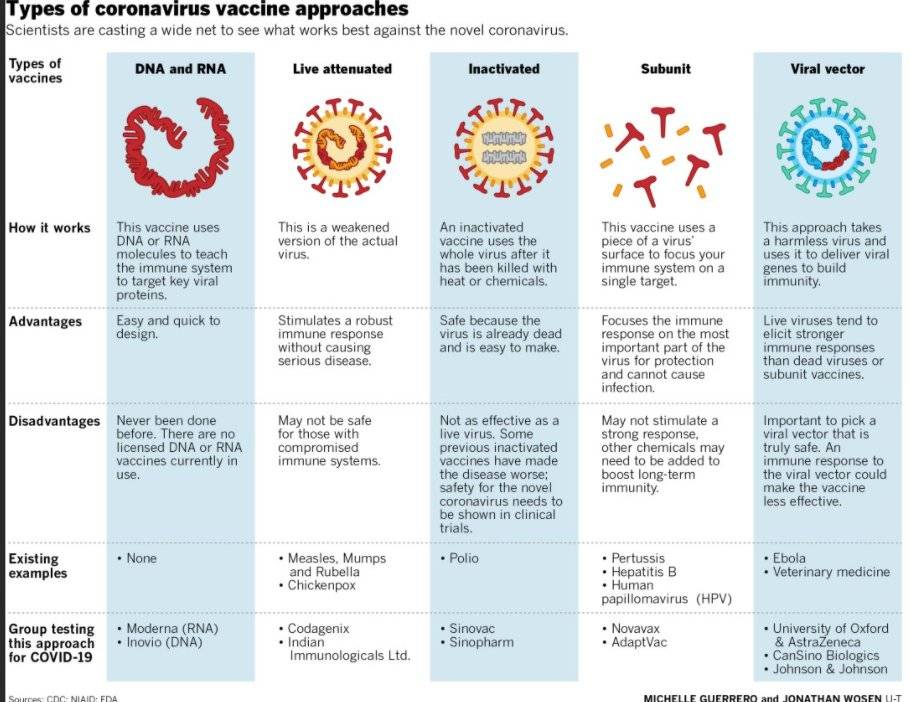 We generally have a wide ‘vocabulary’ of expressions of affection but someone with Asperger’s syndrome may have a more limited vocabulary and problems with the intensity of expression. One of my adult clients with Asperger’s syndrome said, ‘We feel and show affection but not often enough and at the wrong intensity.’
We generally have a wide ‘vocabulary’ of expressions of affection but someone with Asperger’s syndrome may have a more limited vocabulary and problems with the intensity of expression. One of my adult clients with Asperger’s syndrome said, ‘We feel and show affection but not often enough and at the wrong intensity.’
Another of the diagnostic characteristics of Asperger’s syndrome is to develop a special interest that is unusual in terms of the focus or intensity. In adolescence and adult years the focus can be a person, which could be interpreted as a typical teenage ‘crush’, but the intensity and some of the associated behaviours could lead to accusations of stalking or harassment.
The predisposition to develop a special interest can have other effects on the development of relationship knowledge. Special interests have many functions for people with Asperger’s syndrome, and one of these is to acquire knowledge to understand bewildering aspects of their experiences (Attwood 2003b). Teenagers with Asperger’s syndrome are often eager to understand and experience the social and relationship world of their peers, including relationships and sexual experiences, but there can be problems regarding the source of information on relationships. An adolescent with Asperger’s syndrome usually has few, if any, friends with whom he or she can discuss and be informed about relationship topics such as romantic or sexual feelings and the codes of sexual behaviour. Unfortunately, the source of information on relationships for adolescents with Asperger’s syndrome can be pornography for males and television ‘soap operas’ for females. The person with Asperger’s syndrome can assume that the actions in pornographic material provide a script of what to say or do on a date that could lead to being charged with a sexual offence. The charges tend to be for sexually inappropriate behaviour rather than sexually abusive or sexually violent behaviour (Ray, Marks and Bray Garretson 2004). Adolescent women with Asperger’s syndrome may use television programs and films as source material to learn about relationships, and fail to recognise that the actions and themes are not an accurate portrayal of how to achieve and maintain a relationship in real life.
Teenagers with Asperger’s syndrome are often eager to understand and experience the social and relationship world of their peers, including relationships and sexual experiences, but there can be problems regarding the source of information on relationships. An adolescent with Asperger’s syndrome usually has few, if any, friends with whom he or she can discuss and be informed about relationship topics such as romantic or sexual feelings and the codes of sexual behaviour. Unfortunately, the source of information on relationships for adolescents with Asperger’s syndrome can be pornography for males and television ‘soap operas’ for females. The person with Asperger’s syndrome can assume that the actions in pornographic material provide a script of what to say or do on a date that could lead to being charged with a sexual offence. The charges tend to be for sexually inappropriate behaviour rather than sexually abusive or sexually violent behaviour (Ray, Marks and Bray Garretson 2004). Adolescent women with Asperger’s syndrome may use television programs and films as source material to learn about relationships, and fail to recognise that the actions and themes are not an accurate portrayal of how to achieve and maintain a relationship in real life.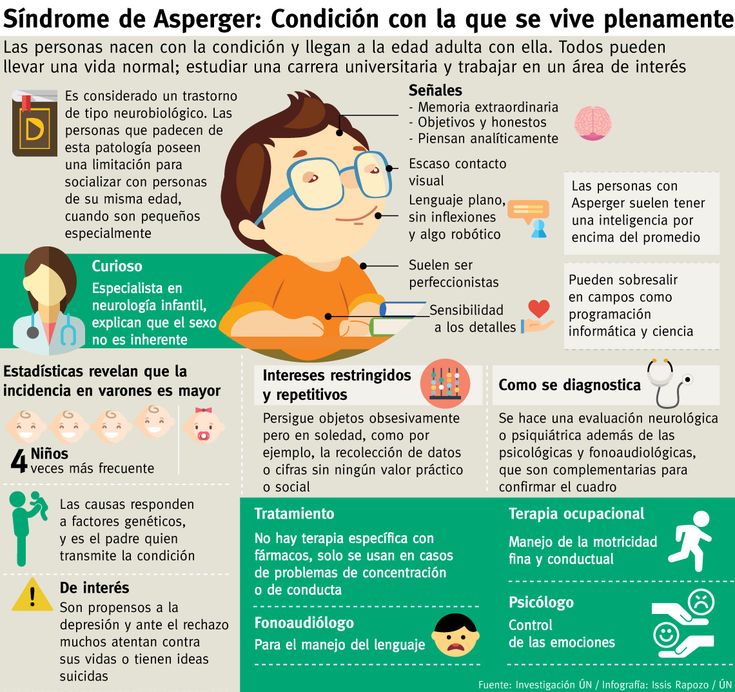
Clinical experience indicates that previously socially excluded and unpopular teenage girls with Asperger’s syndrome have, after the physical changes that occur at puberty, become flattered by the attention of teenage boys. Due to her naivety, the adolescent girl may not recognize that the interest is sexual and not a way for the boy to simply enjoy her personality, company or conversation. Because their daughter has no female friends to provide advice on dating and the social and sexual codes, parents may become concerned about her vulnerability to promiscuity, sexual experiences and date rape.
Difficulties at every stage of relationships
There is a relationship continuum from being an acquaintance to a partner. People with Asperger’s syndrome can have difficulties at each stage on the continuum. The social circle of adults with Asperger’s syndrome can be remarkably small, especially if the person is unemployed and tends to stay at home to avoid social situations. There may be few acquaintances.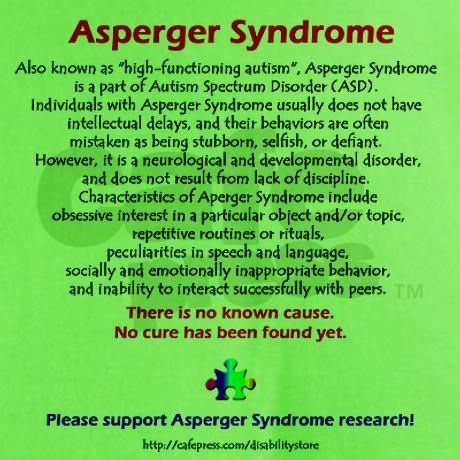 To progress from an acquaintance to a friend, the person with Asperger’s syndrome needs to have age appropriate skills in the pragmatic aspects of language, the art of conversation. Adults with Asperger’s syndrome often have difficulties with initiating, maintaining and ending a conversation, and show a lack of reciprocity or conversational balance and a tendency to be pedantic with excessive and tedious detail (Attwood 2006). We also recognize problems with empathy, limited conflict resolution skills, an inclination to criticize and rarely compliment, and a tendency to show little interest in their friend’s experiences and emotions. Adults with Asperger’s syndrome may talk a great deal about their special interest, but not be proficient with social chit chat, the art of attentive and empathic listening, or recognising what might be of interest to the other person.
To progress from an acquaintance to a friend, the person with Asperger’s syndrome needs to have age appropriate skills in the pragmatic aspects of language, the art of conversation. Adults with Asperger’s syndrome often have difficulties with initiating, maintaining and ending a conversation, and show a lack of reciprocity or conversational balance and a tendency to be pedantic with excessive and tedious detail (Attwood 2006). We also recognize problems with empathy, limited conflict resolution skills, an inclination to criticize and rarely compliment, and a tendency to show little interest in their friend’s experiences and emotions. Adults with Asperger’s syndrome may talk a great deal about their special interest, but not be proficient with social chit chat, the art of attentive and empathic listening, or recognising what might be of interest to the other person.
To progress along the relationship continuum from a friend to a boyfriend or girlfriend, an adolescent or adult with Asperger’s syndrome needs to understand the art of flirting and romance, to accurately read the signals of mutual attraction and understand the dating game. These abilities are not intuitive for people with Asperger’s syndrome. I am often asked by teenagers and young adults with Asperger’s syndrome, ‘How do I get a girlfriend/boyfriend?’ This is not an easy question to answer. Adults with Asperger’s syndrome often want to be a friend and lover but have little idea of how to do either (Jacobs 2006). One of the difficulties for people with Asperger’s syndrome can be to correctly interpret someone’s intentions. An act of kindness or compassion can be perceived by the person with Asperger’s syndrome as a signal of a deeper level of interest or more personal than was intended. I have had to explain to men with Asperger’s syndrome that the smile and personal attention of a female member of the cabin crew on an aircraft are signs of courtesy, not an indication of a desire for a relationship.
These abilities are not intuitive for people with Asperger’s syndrome. I am often asked by teenagers and young adults with Asperger’s syndrome, ‘How do I get a girlfriend/boyfriend?’ This is not an easy question to answer. Adults with Asperger’s syndrome often want to be a friend and lover but have little idea of how to do either (Jacobs 2006). One of the difficulties for people with Asperger’s syndrome can be to correctly interpret someone’s intentions. An act of kindness or compassion can be perceived by the person with Asperger’s syndrome as a signal of a deeper level of interest or more personal than was intended. I have had to explain to men with Asperger’s syndrome that the smile and personal attention of a female member of the cabin crew on an aircraft are signs of courtesy, not an indication of a desire for a relationship.
Despite the problems in relationship skills experienced by many people with Asperger’s syndrome, some adults can progress along the relationship continuum and are able to experience intimate personal relationships, even becoming a life-long partner. To achieve such a relationship, both partners would have initially noticed attractive qualities in the other person. What are the characteristics that someone would find attractive in an adult with Asperger’s syndrome?
To achieve such a relationship, both partners would have initially noticed attractive qualities in the other person. What are the characteristics that someone would find attractive in an adult with Asperger’s syndrome?
Attractive qualities of a person with Asperger’s syndrome
Men with Asperger’s syndrome have many qualities that can be attractive to a prospective partner (Aston 2003). When conducting relationship counseling with one or both partners having the characteristics or diagnosis of Asperger’s syndrome, I often ask the typical partner, ‘What were the characteristics that made your partner attractive when you first met him/her?’ Many women describe their first impressions of their partner with Asperger’s syndrome as being someone who is kind, attentive and socially or emotionally immature. The term ‘silent, handsome stranger’ can be used to describe someone who seems relatively quiet and good looking. Physical characteristics and attentiveness can be important, especially if the woman has doubts regarding her own self-esteem and physical attractiveness.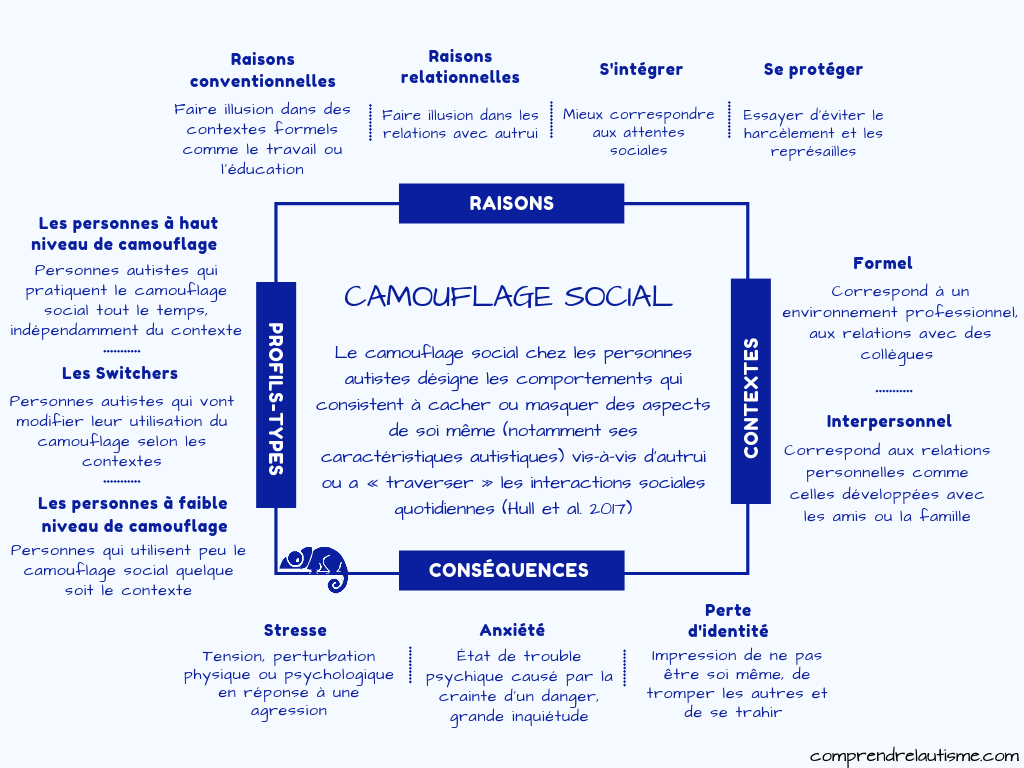 The man’s lack of social and conversation skills can lead to his being perceived as the ‘silent stranger’ whose social naivety and immaturity can be transformed by a partner who is a natural expert on empathy, socializing and conversation.
The man’s lack of social and conversation skills can lead to his being perceived as the ‘silent stranger’ whose social naivety and immaturity can be transformed by a partner who is a natural expert on empathy, socializing and conversation.
I have noted that many of the partners of men and sometimes women with Asperger’s syndrome have been at the other end of the social and empathy continuum. They are intuitive experts in Theory of Mind, namely understanding and empathizing with someone else’s perspective. They are naturally gifted in the ability to understand the world as experienced by the person with Asperger’s syndrome, much more than a person of average Theory of Mind abilities. They are understanding, sympathetic and provide guidance for their partner in social situations. Indeed, these are the characteristics that an adult with Asperger’s syndrome recognizes that he or she needs and would find desirable in a partner. They will actively seek a partner with intuitive social knowledge who can be a social interpreter, is naturally nurturing, socially able and maternal.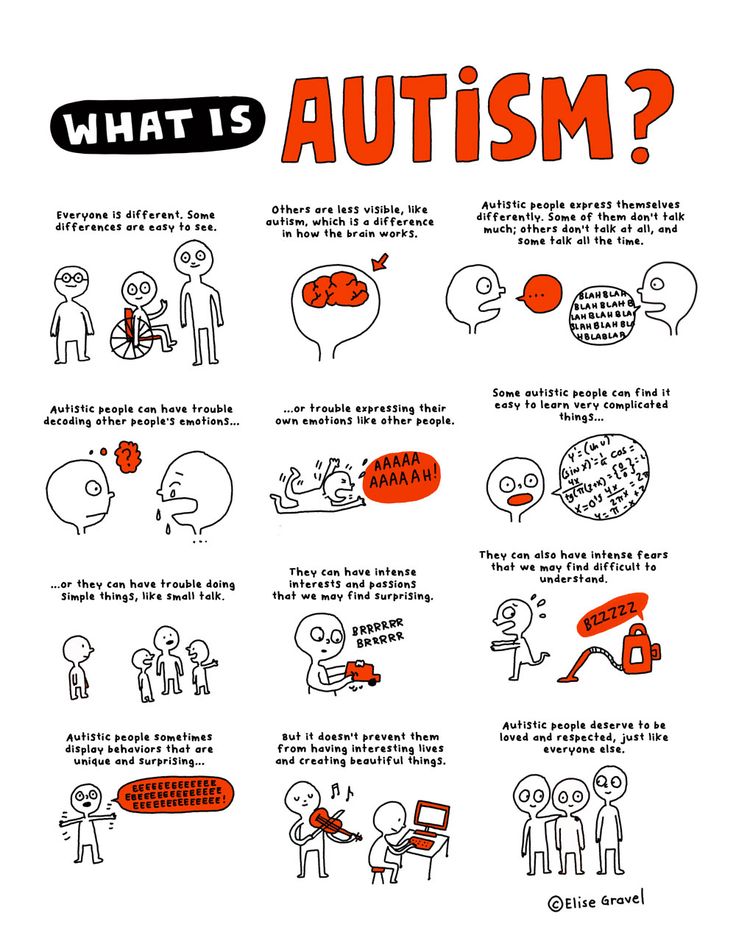 However, while a socially insightful and empathic partner may understand the perspective of the person with Asperger’s syndrome, the person with Asperger’s syndrome is usually unable to understand the perspective of their typical partner.
However, while a socially insightful and empathic partner may understand the perspective of the person with Asperger’s syndrome, the person with Asperger’s syndrome is usually unable to understand the perspective of their typical partner.
The attractiveness of a person with Asperger’s syndrome in a prospective relationship can be enhanced by intellectual ability, career prospects and degree of attentiveness during courtship, although the attentiveness could be perceived by others as almost obsessive. The person’s history of special interests is viewed as typical of many men and initially endearing. The partner may share some of the enthusiasm for the interest, for example learning foreign languages or wine tasting. The person can be admired for speaking his mind, even if the comments may be perceived as offensive by others, due to his strong sense of social justice and clear moral beliefs. The fact that he may not be ‘macho’ or wish to spend time with other men at sporting events or drinking alcohol can also be appealing for some women.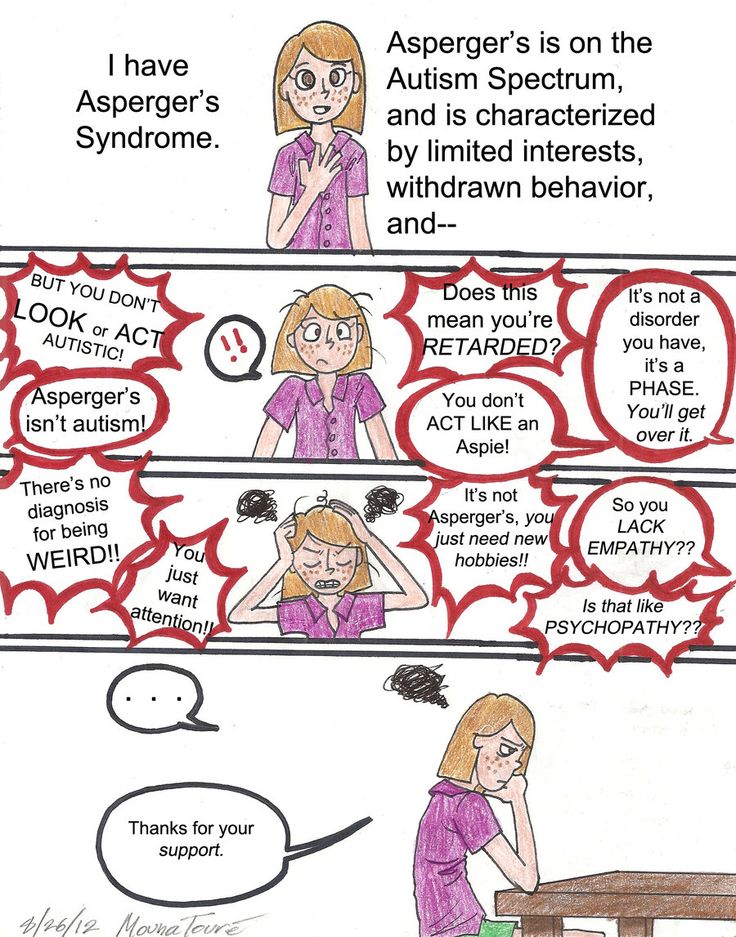 The person with Asperger’s syndrome can be a late developer in terms of relationship experiences – there is no previous relationship ‘baggage’. I have also noticed that many women have described to me how their partner with Asperger’s syndrome resembled their father. Having a parent with the signs of Asperger’s syndrome may have helped determine their choice of partner as an adult.
The person with Asperger’s syndrome can be a late developer in terms of relationship experiences – there is no previous relationship ‘baggage’. I have also noticed that many women have described to me how their partner with Asperger’s syndrome resembled their father. Having a parent with the signs of Asperger’s syndrome may have helped determine their choice of partner as an adult.
What are the characteristics that men find attractive in a woman with Asperger’s syndrome? The attributes can be similar to the characteristics women find appealing in a man with Asperger’s syndrome, especially the degree of attentiveness. The woman’s social immaturity may be appealing to those men who have natural paternal and compassionate qualities. There can be an appreciation of her physical attractiveness and admiration for her talents and abilities. Unfortunately, women (and sometimes men) with Asperger’s syndrome are not very good at character judgments or identifying relationship predators. Women with Asperger’s syndrome often have low self-esteem which can affect their choice of partner in a relationship. They can be the victim of various forms of abuse. As Deborah explained to me, ‘I set my expectations very low and as a result gravitated toward abusive people.’
They can be the victim of various forms of abuse. As Deborah explained to me, ‘I set my expectations very low and as a result gravitated toward abusive people.’
Problems in long-term relationships
Oscar Wilde suggested that ‘Women love men for their defects’, but defects that were initially attractive can become a problem in a long-term relationship. The courtship may not provide an indication of the problems that can develop later in the relationship. Hans Asperger stated that ‘Many of those who do marry, show tensions and problems in their marriage’ (Asperger 1944). Some partners have explained that the real persona only became apparent after they were married.
The initial optimism that the partner with Asperger’s syndrome will become more motivated and able to socialize, develop empathy and the ability to meet their partner’s need for affection and intimacy can gradually dissolve into despair that these abilities are not going to be achieved easily, if at all. The most common problem for the non- Asperger’s syndrome partner is feeling lonely. The person with Asperger’s syndrome can be content with his or her own company for long periods of time. Conversations may be few and the opinion of the person with Asperger’s syndrome is that a conversation is primarily to exchange practical information. They may not notice, recall or want to talk about information of emotional significance to their partner.
In a successful relationship there is the expectation of regular expressions of love and affection. Chris, a married man with Asperger’s syndrome, explained that:
I have an enormous difficulty with the verbal expression of affection. It is not just a case of feeling embarrassed or self-conscious with it. I understand that this may be difficult for anyone else to understand, but it takes a great deal of effort of will to tell my wife how I feel about her. (Slater Walker and Slater Walker 2002, p.89)
His wife added her comments regarding her husband’s infrequent words and gestures that communicate feelings of love and affection:
Chris told me once that he loved me.I have since discovered that it is not necessary for the person with AS to repeat these small intimacies that are frequently part of a relationship; the fact has been stated once, and that is enough. (Slater Walker and Slater Walker 2002, p.99)
The non-Asperger’s syndrome partner can suffer affection deprivation which can be a contributory factor to developing low self-esteem and depression. A survey of women who have a partner with Asperger’s syndrome included the question, ‘Does your partner love you?’ and 50 per cent replied, ‘I don’t know’ (Jacobs 2006). What is often conspicuously missing in the relationship are daily expressions of love for the other person. For the person with Asperger’s syndrome, this frequent reiteration of the obvious or known facts is illogical and unnecessary.
During moments of personal distress, when empathy and words and gestures of affection would be anticipated as a means of emotional repair, the typical partner may be left alone to ‘get over it’. This is not a callous act. For the partner with Asperger’s syndrome, the most effective emotional repair mechanism is often solitude, and he or she assumes this is the most effective emotional repair mechanism for his or her partner. The partner with Asperger’s syndrome may also not know what to do, or may choose to do nothing, because of a fear of doing something that could make the situation worse.
Partners have reported problems with sexual knowledge and intimacy. Adults with Asperger’s syndrome tend to be at the extremes of sexual knowledge, having either remarkably little information on sexuality and few sexual experiences, or a great deal of knowledge from pornography or being sexually abused. Partners with Asperger’s syndrome tend not to be naturally skilled in the art of romance, foreplay and sensuous touch. Sensory sensitivity in general and tactile sensitivity in particular can affect both every day and sexual relationships. An intense sensitivity to specific aromas can affect the tolerance of perfumes and thus proximity to other people. Due to tactile sensitivity, gestures of reassurance or affection, for example a touch on the forearm or a hug, can be perceived as an overwhelming, restricting and unpleasant sensation. The typical partner may resent the obvious lack of enjoyment in response to affectionate touch and avoidance of tactile experiences during more intimate sensual or sexual moments. The aversion to touch is due to problems with sensory perception rather than a lack of commitment to the relationship. The sexual script of the person with Asperger’s syndrome can be described by their partner as rigid, repetitive and unimaginative with a relative lack of sexual desire.
Having a relationship with a person with Asperger’s syndrome can affect the partner’s mental health. A survey of the mental and physical health of couples where the male partner in the relationship had Asperger’s syndrome indicates that the relationship has very different health effects for each partner (Aston 2003). Men with Asperger’s syndrome stated that their mental and physical health had greatly improved due to being in a long-term relationship. They were less stressed than when single and the relationship brought considerable personal satisfaction. This was in contrast to their partners, who reported that their mental health had deteriorated due to the relationship. They described feeling emotionally neglected and physically exhausted and depressed. They may resent their partner for being emotionally inarticulate and feel trapped by the relationship. The physical exhaustion can be due to the partner with Asperger’s syndrome not sharing the work load at home for domestic chores or caring for children. Adults with Asperger’s syndrome can have organizational problems such that their partner has to be an ‘executive secretary’, taking responsibility for budgeting and planning. In modern western society we have tended to replace the word husband or wife with the word partner. Women today expect their partner to not only share the responsibilities but also be their best friend to provide emotional as well as practical and financial support.
Sharing and being a best friend are not attributes that come easily for the person with Asperger’s syndrome.
Strategies to improve relationship skills
People with Asperger’s syndrome will require guidance in relationship skills at each point on the relationship continuum and probably throughout their lives. Children will need guidance from a speech pathologist in the art of conversation, and strategies to improve friendship skills throughout the school years from a teacher or psychologist. The development of friendship skills must be a priority for educational services that support a child with Asperger’s syndrome, as greater maturity and ability in friendship skills will improve self-esteem, reduce incidents of being teased or bullied, lay the foundations for adult relationship skills and encourage teamwork abilities for successful employment (Attwood 2006). Adolescents will need accurate information on attraction, the dating game and sexuality. While this information is easily available for typical teenagers, often from friends, parents, classroom programs and gradual experience, this information and experience may not be as easily available for a teenager with Asperger’s syndrome. The lack of peer guidance, group discussion and practice will inhibit the development of relationship skills. Fortunately, we now have programs on relationships and sexuality specifically designed for adolescents with Asperger’s syndrome (Henault 2005), advice from fellow teenagers with Asperger’s syndrome (Jackson 2002), and some Family Planning organisations, particularly in Australia, are developing resource material and expertise in teaching relationship skills to adolescents and young adults with Asperger’s syndrome. The education ranges from improving knowledge on dating etiquette and dress sense to ways to identify and avoid sexual predators. A valuable strategy is to have a socially perceptive friend or relative meet a prospective date to determine whether the person appears to be of good character, before developing a relationship.
Young adults will need encouragement to make acquaintances and friends. This can include joining a hobby or interest group that is associated with a special interest such as attending a Star Trek or Dr Who convention, or an application of a talent, such as a natural ability with animals and joining an animal protection group. There can be opportunities to make friends at community activities such as a local choir, taking a class or renewing old acquaintances. It may be wise to avoid trying to meet people at pubs and clubs due to the risk of meeting a relationship predator, access to alcohol and drugs and the practical difficulty of trying to have a conversation in a noisy and crowded environment. Local Asperger’s syndrome support groups for parents have established support groups for young adults with Asperger’s syndrome. This can provide an opportunity for someone to address the group and provide discussion and guidance in relationships. The group can also be an opportunity for relationships to develop between group members. The relationship that developed between Jerry and Mary, two adults with Asperger’s syndrome who met at a support group in Los Angeles, has been the subject of a film and book (Newport 2007). Some adults with Asperger’s syndrome have used the Internet and dating agencies to meet people, but this method of introduction can also be used by relationship predators and an adult with Asperger’s syndrome needs to be aware of relationship risks using this strategy.
Do all individuals with an ASD seek a partner?
I have noted that adults who had clear signs of autism in early childhood (that is, language delay, learning difficulties and avoidance of social situations) and who in later childhood progressed to a description of High Functioning Autism, are often less motivated to seek a long-term relationship. They are more likely to be content with solitude and celibacy and having acquaintances rather than friends. A sense of self- identity and personal value is achieved by having a successful career and being independent. Temple Grandin is a well known example (Grandin 1995). Some adults with Asperger’s syndrome have also decided not to seek an intimate relationship with someone for sensible reasons when one considers the characteristics of Asperger’s syndrome. Jennifer explained her rationale: ‘Can I deal with sharing a house with someone who might possibly touch my model airplane collection?’ and ‘model airplanes do not decide that they want to be built by someone else who is more attractive or less needy’ (McIlwee Myers 2006 pp. 109, 112). Her life does include moments of intense personal satisfaction. She states that, ‘I can assure you that being in love and having special interests are much the same feeling’ (p.112). Not having a relationship can be a positive choice for some adults with Asperger’s syndrome who enjoy pursuing their special interests, such as wild life photography or a career in information technology. They are content not to be swept away by the cultural belief that marriage or a long-term relationship are the only ways to achieve happiness.
An excerpt from Tony Atwood’s Foreword to an excellent and highly recommended new book: “The Partner’s Guide to Asperger Syndrome” by Susan J. Moreno, Marci Wheeler and Kealah Parkinson, 2012, Jessica Kingsley Publishers, London.
To read the full article please click here.
Purchase the book please visit: www.jkp.com or amazon.com
Asperger's and Adult Relationships: Dating, Romance, Tips
Autism spectrum disorder (ASD) is a complex neurodevelopmental condition that can affect many aspects of someone’s life, including the way they think, learn, and behave. People on the spectrum often struggle with social and communication skills, which can make it difficult for them to form and maintain relationships in adulthood.
Autistic people can and do have happy, healthy romantic relationships – with neurotypical and neurodivergent partners – but there can be some unique challenges.
Keep reading to learn more about how ASD can impact relationships and how you can manage these issues in your own life.
Asperger’s syndrome was once classified as a unique condition separate from autism but within the same family of neurodevelopmental conditions.
In 2013, the American Psychiatric Association eliminated Asperger’s as a diagnosis in the “Diagnostic and Statistical Manual of Mental Disorders, 5th edition (DSM-5).” It classified it under the umbrella term “autism spectrum disorder (ASD)” instead.
Asperger’s joined several other conditions, including Rett syndrome, as a part of ASD.
ASD is not common. Experts believe around 1% of the general population are autistic. It’s important to point out, though, that the actual numbers could be higher. A number of autistic people likely do not have an official diagnosis, especially women and older adults.
Older autistic adults may not have been screened for the condition when they were younger despite showing signs of it. And autistic girls sometimes have less obvious or atypical signs.
Males are much more likely to be diagnosed with ASD than females, at a ratio of 3-to-1. And ASD is more often diagnosed in non-Hispanic white children than in children of other races and ethnicities.
People with Asperger’s often need minimal support compared with some other autistic people.
For example, some autistic people have higher impairment in social and communication skills and high engagement in repetitive or restrictive behaviors.
Asperger’s can also cause these effects, but to a lesser degree.
ASD causes a diverse set of signs and symptoms. The most common signs of Asperger’s in adults are:
- formal speech patterns
- average to above average vocabulary
- average to above average intelligence
- focused interest in one particular subject
- ability to talk for long periods of time about their interest, often in a one-sided conversation
- strict routines or rituals
- difficulty acclimating to changes in routine
- needing long periods of alone time
- peculiarities in speech and language
- inability to engage socially with peers
- disinterest in social interactions because of difficulties with small talk
- problems with nonspeaking communications
- uncoordinated movements that may seem clumsy
- sensory issues, such as sensitivity to light, smell, or touch
Many autistic adults are able to successfully hold jobs and live independent lives with minimal support. They can also develop close personal relationships that lead to marriages and families.
It’s entirely possible for autistic people to have intimate relationships, whether they’re platonic or romantic. But ASD may present particular challenges for couples and friends.
Autistic people may face social and communication differences throughout the continuum of relationships, from acquaintances to intimate partners. Because of this, they may have less experience forming close relationships.
This can make each stage of a relationship a new challenge, but it doesn’t mean autistic people won’t succeed.
Here is a look at the particular ways ASD might affect relationships.
Communication
Autistic people can experience several types of communication differences. They may have difficulties understanding what other people are thinking or the meaning behind their words. Autistic people may not read nonspeaking cues well. This includes facial expressions and vocal intonations.
Verbally expressing themselves may be difficult, too. For example, an autistic person may say something unintentionally hurtful and have trouble understanding why someone would react negatively.
But communication issues go two ways. In fact, in one 2018 study, autistic people reported difficulty understanding what their loved ones were thinking — but close friends and family also reported difficulty understanding what their autistic loved one was thinking.
Taken together, these issues can make communication hard. It may mean both people feel shut out of understanding what the other is thinking or doing. This can slow or stop the development of close relationships.
If not addressed, it can make important relationship aspects, like empathy and trust, difficult to build and maintain.
Interests
Autistic people often develop focused interests. They may turn to this interest as a way to cope with challenges or issues at home, work, or school. For their partner, they may consider this as avoidance behavior, and it can be difficult for them to navigate.
It can also be difficult for a partner or friends and family to understand their loved one’s focused interest.
Affection
Autistic adults may have difficulty understanding and reciprocating signs of affection. These expressions of love may be confusing and overwhelming to them if they do not naturally think to initiate them.
Some autistic people are also asexual or aromantic and seek partners with similar preferences.
Touch avoidance commonly occurs in ASD. Autistic people can have sensitivities to touch, which can make something like hugs or kisses unappealing to them. Unwanted affection may make them uncomfortable, or even angry.
However, autistic people can also be on the other end of the affection continuum. They may show great intensity with affection. Some potential partners may feel overwhelmed by this, especially if they don’t understand it.
As a happy medium, a couple can work together to find expressions of affection that fulfill what each partner wants and needs.
On dating apps, some autistic people choose to include that they’re asexual or aromantic in their bios to inform potential partners of their preferences.
Sexual activity
The spectrum of interest in sexual activity varies broadly for autistic people, just like it does among the general population.
Some autistic adults have sensory issues that make the physical aspects of sex uncomfortable. Others may not experience the emotional connections that make sex a cornerstone of many romantic relationships. Therefore, they may struggle to gauge their partner’s interests and needs.
Other people on the spectrum experience higher than average levels of sexual desire and activity. Research on “high-functioning” autistic people found that autistic males spent more time masturbating and fantasizing than males without autism. Although the sample was relatively small, the study also showed greater interest in voyeurism, masochism, and sadism among the autistic participants.
Research has found that autistic people have less sexual knowledge than the general population and that they are more likely to learn about sex from non-social sources, like pornography. Autistic people of all genders are also at increased risk of sexual victimization, including sexual coercion.
Social life
Personal relationships of all kinds may be challenging for autistic people. Small talk may be unappealing to them, and conversations may cause a lot of anxiety. This can make it hard to make friends and start a romantic relationship.
Many autistic people enjoy solitude over socializing. However, this can prevent them from establishing and practicing social and communication skills.
Parenting
Autistic parents can have great relationships with their children. For example, they may engage with them on a creative level and encourage them to explore their interests.
Some autistic parents may encounter difficulties with certain aspects of parenting. This can include discipline and empathy.
Other autistic parents may not be able to provide the emotional element of parenting. They may struggle with signs of affection like hugs and have difficulty comforting a child.
It’s possible for autistic people to have healthy and happy relationships, just like any other person.
All relationships take work and effort. Relationships between neurodiverse and neurotypical people, or relationships between two neurodiverse people, are no different.
Consider these strategies for managing any issues in a neurodiverse partnership:
- Be intentional: For neurotypical couples, communication exists in many forms: verbal, written, emotional, nonspeaking, etc. Autistic people may not be able to interpret or use all of these. Instead, both partners can aim to be as direct and clear in their communications as possible. Leave nothing as a hint or suggestion.
- Set clear rules: This is especially important for parenting, where you both need to present a united front.
You can also discuss each other’s strengths and opportunities, and divide tasks based on them. For example, perhaps the nonautistic parent takes charge of disciplining your children.
- Consider therapy: Individual therapy can be helpful for both partners. You can consider couples therapy, too. While therapy is not an immediate “fix,” it’s a wonderful opportunity for people to learn ways to communicate and cope with challenges in their relationships.
It can be a challenge for autistic people to cope with their nonautistic partner’s expectations and demands. It can be just as challenging for a nonautistic person to cope with their neurodiverse partner’s expectations and demands, too.
Here are a few tips for nonautistic partners:
- Learn about ASD: ASD is a neurodevelopmental condition. That means it fundamentally affects the way a person perceives, engages with, and responds to the people and world around them.
Understanding how ASD impacts a person’s thoughts and behaviors can help you better navigate daily life.
- Delegate tasks: Autistic people may have a hard time with executive functions like planning and organizing. This leaves these important tasks up to the nonautistic partner. But it’s possible for the autistic partner to take on certain tasks in other areas of the home, such as homework with kids or walking and caring for pets.
- Seek support: Whether you’re newly in a relationship with a neurodiverse person or you’ve been married for several years, it’s a good idea to seek knowledgeable professionals and individuals in similar situations. This can include working with a therapist who has experience in neurodiverse couples or turning to online support groups.
- Find outside fulfillment: It’s possible to find personal fulfillment outside your relationship with your partner.
In fact, it can be healthy. Consider ways to connect with friends and your community. Look into classes for things that interest you, or practice some self-care.
- Remember the positives: You likely fell in love with your partner for very specific reasons. And despite the challenges, remembering the things you love about your partner and about the two of you together can help boost your self-esteem and reengage your dedication to the relationship.
It’s definitely possible for autistic people to have healthy, fulfilling relationships. These can be personal friendships as well as romantic partnerships.
As with any relationship, neurodiverse couples will likely face issues. Communication is a big area of concern that often requires work and patience.
Other issues may arise with elements of intimacy, socializing, and parenting. ASD creates a set of unique challenges for people in relationships. But with effort and attention, they can be overcome.
How can romantic relationships develop in young people with Asperger's syndrome and high-functioning autism?
04/19/14
Clinical psychologist, specializing in Asperger syndrome, about the features of romantic and intimate relationships in adults with RAS
Author: Tony Etwood / Tony Attwood
Translation: Tamara Solomatina
9000 9000 9000 9000 9000 Autism Network
While young people with classic autism usually suffice with a solitary “hermit” lifestyle, people with Asperger's syndrome and high-functioning autism often do not. Clinical studies have shown that most of these adolescents and young adults are interested in romantic relationships. However, very little research addresses this aspect of autism spectrum disorders or strategies for successfully developing these relationships.
We know that young people with Asperger's have significant difficulty developing relationships with peers and understanding what the other person may be thinking or feeling. Ordinary children learn this naturally and practice the skills to develop relationships with family members and friends long before they use these abilities to successfully develop romantic relationships. Young people diagnosed with Asperger's and high-functioning autism have limited communication skills and may find it difficult to express emotions, especially affection. They may also have very high sensitivity to certain sensory experiences. All of these diagnostic characteristics affect relationship-forming skills as the child grows and will ultimately reduce the adult's chances of a successful long-term relationship.
Love and affection
People with autism spectrum disorders have difficulty understanding and expressing emotions, and the most difficult emotion for such people is love. Ordinary children and adults often express their affection with pleasure, know how to express it to exchange mutual feelings of affection and love, and know how to support someone through the expression of affection. A child or adult with autism may not need the same depth and frequency of expressions of love through actions, or may not realize that the situation requires them to display their affection in a way that would please the other person. He or she may be annoyed by how "obsessed" other people are with expressing love for each other.
Some autistics may be obviously immature in their expressions of affection and sometimes perceive them as a negative experience. For example, a hug may feel uncomfortable and limit movement. A person may become embarrassed or overwhelmed when expected to express and accept fairly moderate expressions of love. I recently developed a cognitive behavioral therapy program for children and adolescents with Asperger's Syndrome that teaches them about the emotion of love and how to express that you love or feel sympathy for someone. The program will soon be evaluated in a study conducted by the University of Queensland in Australia.
Special interests
One of the diagnostic characteristics of Asperger's syndrome is the development of a special interest that is unusual in its object and significance. For adolescents and young adults, the target is sometimes a person, which can be interpreted as a typical teenage crush, but the degree of interest and associated behavior often lead to accusations of stalking and harassment. The propensity to develop a special interest can also influence the emergence of relationship knowledge in other ways. Special interests help people with Asperger's in many ways, including acquiring the knowledge to understand the annoying aspects of their life experiences. Adolescents with Asperger's Syndrome often seek to understand and experience in terms of communication and relationships, including romantic and sexual ones, the same as their peers, but they may have problems with sources of information about relationships and sexuality.
A teenager with Asperger's syndrome has few or no friends with whom to discuss topics such as romantic or sexual feelings and sexual behavior. Unfortunately, the only source of information for teens with Asperger's can be either porn movies for boys or soap operas for girls. A person with Asperger's Syndrome may decide that the actions shown in pornographic material can serve as a "script" of what to say or do on a date, but this misunderstanding can lead to allegations of harassment. Such allegations are more often related to inappropriate behavior than to violent or aggressive acts of a sexual nature. Girls with Asperger's Syndrome may use movies and TV shows as a source of knowledge about relationships and fail to recognize that TV shows do not accurately reflect the beginning and development of relationships in real life.
Clinical studies show that unpopular girls with Asperger's syndrome, who are not accepted into any company, after the physical changes that occurred during puberty, are flattered by the attention from boys. Because of her naivete, the girl may not realize that their interest is sexual in nature, and not at all a desire to simply communicate with her and spend time in her company. She may not have female friends to take her on a first date or give her advice on social and sexual rules. Her parents may have strong concerns about her vulnerability to negative sexual experiences and possible date rape.
Long-term relationship
There is a transition from acquaintance to partnership in the relationship. Individuals with Asperger's may find it difficult to cope with each step of this transition. To move from friend to partner status, a teenager or young person with Asperger's needs to understand the art of flirting in order to accurately read the signals of mutual sympathy and not get lost during dates. People with Asperger's do not understand this intuitively. These teens and young adults often ask me, “How can I find a boyfriend/girlfriend?” And this question is not easy to answer. One of the difficulties can be the correct interpretation of someone's intentions. A simple expression of kindness or sympathy can be taken much more seriously than intended. I have had to explain to men with Asperger's that the smile and attention from female flight attendants are just courtesies, not a desire to start a relationship.
Despite the relationship problems that most people with Asperger's have, some can develop relationships and form romantic and intimate relationships, even marriage. To achieve this level of relationship, partners need to initially notice the attractive qualities of each other. What is so attractive about a young person with Asperger's Syndrome?
Attractive qualities of people with Asperger's syndrome
Men with Asperger's syndrome may have a wide range of qualities that are attractive to a future partner. When I counsel couples in which one or both partners have characteristics or a diagnosis of Asperger's Syndrome, I often ask the neurotypical partner, "What qualities did your partner draw you to when you first met?" Many women describe that a partner with Asperger's syndrome initially impressed them as kind, considerate, but socially or emotionally immature. The term "silent handsome stranger" is often used to describe anyone who seems relatively quiet and likeable. Appearance and attention can become very important, especially if a woman has doubts about her own self-esteem and physical attractiveness. Lack of social and conversational skills lead to the formation of the image of the "mysterious stranger", whose naivety and immaturity the partner can compensate for by becoming an expert in empathy, socialization and communication.
I have noticed that the partners of many men and sometimes women with Asperger's are on the other end of the social and empathic spectrum. On an intuitive level, they are experts in the "model of the mental" (understanding someone else's consciousness), that is, they understand and sympathize with the experiences of other people. They have the gift of seeing the world as it appears to people with Asperger's to a much greater extent than people with average empathy. Being understanding and sympathetic, they help their partner cope with difficulties in social situations. Undoubtedly, adults with Asperger's Syndrome need these traits and want to see them in a potential partner. He or she will actively seek out someone with intuitive social skills, someone who will explain social situations to them, educate them, and care for them. However, while a socially gifted and empathetic partner may be able to understand the experiences of a person with Asperger's Syndrome, that person will have significant difficulty understanding their neurotypical partner.
Intellectual abilities, one's own career, and increased attention to one's partner during courtship can make a person with Asperger's syndrome more attractive. Sometimes, however, this attentiveness can be perceived by others as excessive, and words and actions will seem as if they were memorized from Hollywood romantic films. A person can be admired for his straightforwardness, even if his comments hurt other people, because of his strong desire for social justice and clear moral principles. The fact that he may not be "macho" at all or not eager to spend time with other men at sports matches can also be very attractive in the eyes of some women. And the fact that a person with Asperger's syndrome entered into a relationship quite late can also be a plus. He may not have the "baggage" of previous relationships. I have also heard many women say that a partner with Asperger's Syndrome reminds them of their father. The fact that they grew up with a parent with Asperger's traits may also have influenced their choice of partner in adulthood.
What traits do men find attractive in women with Asperger's syndrome? They may be similar to what women find attractive in men with Asperger's, especially the degree to which they are attentive. The social immaturity of a woman can attract men who are prone to guardianship and compassion. They may admire her beauty or her talents and abilities. Unfortunately, women (and sometimes men) with Asperger's have a hard time assessing a person's character and knowing when a relationship becomes "dangerous." Such women often have low self-esteem, which affects their choice of a partner for a relationship. They may become victims of various forms of violence. As one woman with Asperger's syndrome explained to me, "I had low expectations and as a result I was drawn to violent people."
Strategies to Improve Relationship Skills
People with Asperger's will need help developing relationships at every stage, and possibly throughout their lives. Younger children will need the help of a speech therapist to improve their conversational skills, and an educator or psychologist will help with friendship skills during their school years. Developing these skills should be a priority for an educational institution supporting a child with Asperger's Syndrome or High Functioning Autism, as positive friendship experiences will increase self-esteem, help avoid bullying from classmates, lay the foundation for developing friendships in the future, and improve teamwork abilities. for more successful employment.
Adolescents will need truthful information about attractiveness, courtship and sexuality. While such information is readily available to typical adolescents (most often from parents, friends, and personal experiences), adolescents with Asperger's Syndrome may have difficulty obtaining it. Lack of peer help, adult information and practice will hinder the acquisition of relationship development skills. Fortunately, we now have special relationship and sexuality education programs designed specifically for teens and young people with Asperger's Syndrome that include the opportunity to get advice from a peer with the same syndrome. Several doctors and therapists in Australia are developing relationship skills training materials for adolescents and young people with Asperger's Syndrome. Such training will include everything from dating rules and a sense of style to ways to recognize and avoid dangerous partners. A valuable strategy here can be to meet socially receptive friends or relatives with a potential partner to determine if they are a good person before starting a relationship.
Young people will need support and opportunities to meet new people. Here you can offer to do something or join an interest group related to their own special passion, for example, take part in Star Trek or Doctor Who fan meetings, or apply their talents, say, to taking care of animals. and join an animal welfare group. There are also opportunities to make new friends at community events, such as a local choir or adult education courses. Local support groups for parents of children with Asperger's have also established support groups for young people with Asperger's. In this case, specialists can come to the group and hold a group discussion or give advice. Such groups can provide an opportunity for the development of relationships between members of the group. The relationship between Jerry and Mary, two people with Asperger's who met at a support group in Los Angeles, has been the subject of a book and film (Crazy in Love). Some people with Asperger's Syndrome use the Internet and dating agencies to get to know someone, but this method of dating can also be used by dangerous partners, so you need to take into account the high risk when using this dating strategy.
I have noticed that adults who had prominent signs of autism in childhood (significant language delay, learning difficulties, avoidance of social situations) but progressed to high-functioning autism later in life have much less desire to develop long-term relationships. Most likely, they will be content with loneliness and will not maintain sexual relations, preferring superficial acquaintances to friendship. A sense of self-identity and self-worth in such people is achieved through a successful career and an independent life. Temple Grandin is a good example of this. Some adults with Asperger's also choose not to form close relationships for reasons that seem logical given the traits associated with the syndrome.
Jennifer explains her decision: “How can I live in the same house with a person who can touch my collection of model airplanes?” And so: "Airplane models do not want to be designed by someone else, even if it is more attractive or less dependent." However, she is quite satisfied with her life. She says, "I can assure you that falling in love and special interests are about the same feeling." For some people with Asperger's or high-functioning autism, giving up romantic relationships may be the right choice if they enjoy and fully devote themselves to their special interests, such as wildlife photography or a career in information technology. They don't fit the cultural mold that marriage and long-term relationships are the only way to achieve happiness.
Future Research Perspectives
We know that people with Asperger's have significant difficulties developing relationships, but there is not enough research to provide us with qualitative and quantitative data about their relationship abilities, circumstances, and experiences. A study has recently been published on the ability to maintain friendships in children with Asperger's syndrome, but there is very little research on adolescent relationships and sexuality. Dr. Isabelle Henault of Montreal is conducting a study with me on the sexual profile of people with Asperger's syndrome, and preliminary results show that this profile differs from that of ordinary people due to less sexual experience, although they develop sexual interest in the same period, which and their adolescent peers. They may also have a more relaxed attitude towards sexual diversity, such as homosexuality and bisexuality, and a rich sexual fantasy. They may be less concerned about the partner's age and cultural differences. However, further research is needed, and the Autism Interactive Network database may be useful in providing information on the romantic relationships of adolescents and young adults with Asperger's and high-functioning autism.
Thanks to Tamara Solomatina for the translation.
Autism in adults, Asperger Syndrome, Social skills
90,000 SMOs of men with Asperger syndromeTags:
Family Relations,
Symptoms and manifestations of
,headings:
Relations and creating a family
, Many men with Asperger's Syndrome (HA), also called high-functioning autism, have never been diagnosed and are perceived as eccentric, a little weird, or loners. If you are in a relationship with a man on the autism spectrum, you may have noticed many of the following traits. Note, "traits", not "character flaws". This article is about the symptoms associated with the disorder. And the affected person can often have very little or no effect on most of these symptoms. This article is not written to accuse or ridicule men on the spectrum, and it should be noted that they have more advantages than weaknesses (and there is a lot written about them on this site). But in this article, we will focus on some of the features associated with Asperger's syndrome that can negatively affect romantic relationships.
A man with Asperger's syndrome often has the following features, expressed in different people to varying degrees:
- Special interest (eg coin collecting) is common among men with Asperger's and may have been something they have been doing for years. They are literally in love with it and often have an exhaustive collection of things related to their interest, as well as incredible knowledge in their subject area.
- Although men with Asperger's Syndrome often have a high level of intelligence, it happens that they remain in low-skilled jobs for years or move from one job to another. This is the result of their problems with social skills and communication.
- A man with Asperger's may have a pet (often a dog) to which he has a very strong attachment. A pet is a friend who does not make demands on a person and accepts him as he is.
- Men with Asperger's appear selfish or indifferent. They can speak without considering how their words will affect others.
- Men with Asperger's have a tendency to blame other people instead of themselves. In an attempt to maintain their image and protect their unstable self-esteem, they blame others for things they should be responsible for.
- Short temper is not uncommon in men with Asperger's syndrome. They "explode" over relatively minor things (for example: a burnt dish, a missing book, etc.). Disruption of plans is another reason for the manifestation of their temper.
At the same time, the man himself may understand that he is behaving badly, but feel unable to influence it.
- In a romantic relationship, a man with Asperger's may resist physical contact and open displays of affection or hints of affection.
- Job interviews are often a problem for men with Asperger's Syndrome because, due to impaired social skills, they cannot respond correctly or misunderstand the interviewer's non-verbal cues.
- Men with Asperger's have spent decades learning how to be acceptable in society.
- Men with Asperger's Syndrome often have a reputation for being difficult to communicate with. Others believe that they have a bad character or that they prefer their own social circle.
- Many men with Asperger's want to have friends but are considered loners. They usually have a much reduced capacity for social interaction compared to "ordinary" men.
- Many men with Asperger's have learned to lie in order to cope with life's challenges.
For example, instead of admitting that they are overwhelmed by noise, that they are tired of being around people, or that they want to pursue their special interest, they may lie and say that they are not feeling well or that they have an appointment.
- Many men with Asperger's Syndrome marry, but the relationship lasts only if both partners are willing to work on problem areas.
- Many men with Asperger's fit the "computer genius" stereotype.
- Many men with Asperger's syndrome fail to make small talk. They focus on the topic of interest to them and talk about it endlessly, but cannot fully understand the exchange of remarks in a general conversation.
- Many men with Asperger's find employment and are generally reliable employees. However, even with the same qualifications as "ordinary" men, they cannot find jobs as easily due to a lack of social skills.
- Sensory traits mean that men with Asperger's don't like things like seams on clothes or tags on shirts.
Hearing features are possible: such a man may not like loud noise or certain music. In addition, crowds can be confusing, and men with Asperger's may avoid all of the above.
- Sexual problems may become apparent if a man with Asperger's Syndrome has not received adequate sex education at an earlier age. In some cases, he learns about sex by looking at pornography on the Internet. If he tries to repeat such scenes with his partner, it can lead to great confusion.
- Social activity may be limited. The wife of a man with Asperger's usually forms his social circle while he stays at home.
- Some men with Asperger's syndrome come to a secluded lifestyle, they are beginning to be called "hermits", "recluses". They seem to find it easier to live this way, and they feel more at ease than when they face the complexities of interpersonal relationships on a daily basis.
- Some men with Asperger's syndrome prefer to have a confirmed diagnosis, while others would prefer to lead the same lifestyle as before.
However, some people deny the possibility of having Asperger's and get offended when someone brings up the issue.
- Some men with Asperger's Syndrome become permanently defensive over time and find it difficult to confront or discuss things with them. It is often the result of bullying and isolation from peers at a younger age.
- Teamwork can create problems. A man with Asperger's works better if he has his own office without noise and distracting social interaction.
- When courting a girl, a man with Asperger's syndrome comes across as quiet and reserved. In marriage, these qualities can become a cause for disagreement, because his wife will be disappointed by his lack of sociability.
In addition to the above, some men with AS have the following traits:
- Often they are "in their own world".
- Attention narrowly focused on his interests.
- Possibly suffering from obsessions.
- Very preoccupied with their plans.
- Can be very critical of themselves and others.
- Very unhappy when others ask them for clarification or some sympathy.
- Engage in some business (sometimes divorced from reality) for hours without a break.
- Can pester friends by asking them to confirm they are "normal".
- Can often be physically and emotionally distant.
- Can sit in the library for hours, pursuing their special interest.
- Collect items.
- Desire friendship and social contacts, but with difficulty establishing and maintaining them.
- Difficulty understanding the feelings of others.
- They don't always recognize people by sight (even some family members).
- Find emotions confusing and uncomfortable.
- Great difficulty with small talk and idle chatter.
- Have a strong desire to communicate something, because of which they may appear dull or offend.
- Intense passion for one or two subjects.
- Lack of empathy at times.
- Lack of interest in other people.
- Preferences can be very rigid.
- Limited interests.
- They are clumsy, have poor coordination of movements.
- Feel oppressed by their partner's need for communication.
- May have a stony, expressionless face most of the time.
- Have difficulty saying "I love you" and showing physical affection.
- Have a great need to leave and be alone.
- Eccentric people.
- Occasionally experience idiosyncratic attachment to inanimate objects.
- Difficulties with the implementation of the curriculum despite a high level of intelligence.
- Perhaps they don't try very hard to keep their friendship.
- "Hang out" in social situations.
- Problems in non-verbal communication (eg, difficulty understanding body language, facial expressions, and tone of voice).
- They often feel that their partners are ungrateful and irritable when they complain (eg "you don't care about me" or "you never listen to me").
- Often take words personally.
- Preoccupied with their plans.
- Repetitive routine, rituals.
- Inflexible social behavior due to an inability to automatically adapt to changes in social situations.
- Sensitivity to product consistency.
- Single-tasking (monotropism).
- Peculiarities of language and speech or developmental delay of speech at an early age.
- Great sensitivity to sound, touch, taste, sight and smell.
- Preoccupation with unusual problems.
- Use repetition of words (for example, they can repeat what you just said).
The information in this article is in no way intended to force you to abandon a relationship with a man with Asperger's Syndrome. As stated above, all of these traits are components of the disorder. Men with Asperger's Syndrome often go out of their way to make themselves look better in relationships. But unfortunately, all too often their "neurotypical" (i.









